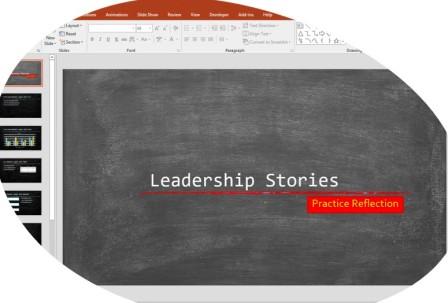
Leadership Stories: Practice Reflection

The Wright Brothers pursuit of flight is chock-full of leadership lessons – the dos and don'ts perhaps – that are as useful for today’s leaders as ever. Many of these lessons and insights can be gleaned from historian David McCullough’s book on the Wright Brothers. Typical leadership books prescribe sets of actions or admonish readers to follow specific effective qualities. Often this knowledge, however valuable, is presented absent applicable context or may be couched in vague, seemingly superficial vignettes. What’s refreshing about extracting leadership lessons from such books as McCullough’s is they are often rooted in real life, concrete applications.
The Wright Brothers effort is a case study on how leaders can address the inevitability of setbacks. As McCullough details, the brothers dealt with failures and setbacks almost constantly; and, more often than not instead of a clearer path emerging after each setback, they faced the reality of having more work to do to achieve their vision of flight. The Wright Brothers mindset is akin to George Orwell’s fictional character Boxer the horse, who after every setback would say: “I will work harder.”
In an increasingly complex, uncertain, and volatile world, today’s leaders, whether in the private sector or in government, will face setbacks that may require them to work harder, but even more importantly leaders will need to work smarter! Being agile, adaptive, and collaborative aren’t just buzzwords. They are in fact qualities and behaviors necessary for today’s leaders to overcome setbacks and work smarter. To work smarter, leaders must also focus on the essentials. As Greg McKeown describes in his book, Essentialism: The Disciplined Pursuit of Less, working hard is important, but more effort does not necessarily yield better results. For McKeown, the “Way of the Essentialist” isn’t about getting more done in less time. It’s not about getting less done. It’s about getting only the right things done. I am reminded of an interview I did with then-Commandant of the U.S. Coast Guard, Admiral Thad Allen in which he discussed the importance of transcending what he calls the “tyranny of the present,” which requires looking beyond the next “annual budget cycle… to lift your head up, look over the horizon, and see where you’re going.” It is this vision that colored Allen’s perspective and informed his leadership. “I’ve stressed [to] our senior leaders to think more strategically … to source to strategy … and act with strategic intent.” Transcending the tyranny of the present, leading with strategic intent involves focusing on the essentials. Or, as McKeown puts it” it is about distinguishing the “trivial many” from the “vital few”.
How can leaders today, who are inundated with data and information, and pulled in so many different directions focus on the “vital few” and go beyond the inevitable setbacks? Jacqueline Carter, co author of The Mind of the Leader, suggested to me in an interview that today’s leaders must engage in the practice of mindful reflection. She noted that reflection time permits things to settle, making everything easier to see and put into perspective. Carter’s suggestion is supported by the work done by Robert Anderson and William Adams for their book, Scaling Leadership. They conducted a research study on the daily practices of highly effective leaders and were able to discern the daily habits they engaged in to develop themselves and maintain peak performance throughout the workday. According to Anderson and Adams, one daily habit stood about above all others: engaging in morning and evening reflection. The actual practice of reflection is simple: finding a quiet space and setting aside five or ten minutes at the beginning of the workday to review what needs to be done in the day ahead, and another five or ten minutes at the end of the workday to determine what went right and what went wrong.
Thus, reflection time as a leadership disciple can enhance the ability of a leader to distinguish the “trivial many” from the “vital few”. Doing this can transform setbacks into opportunities and convert working hard into working smart.



